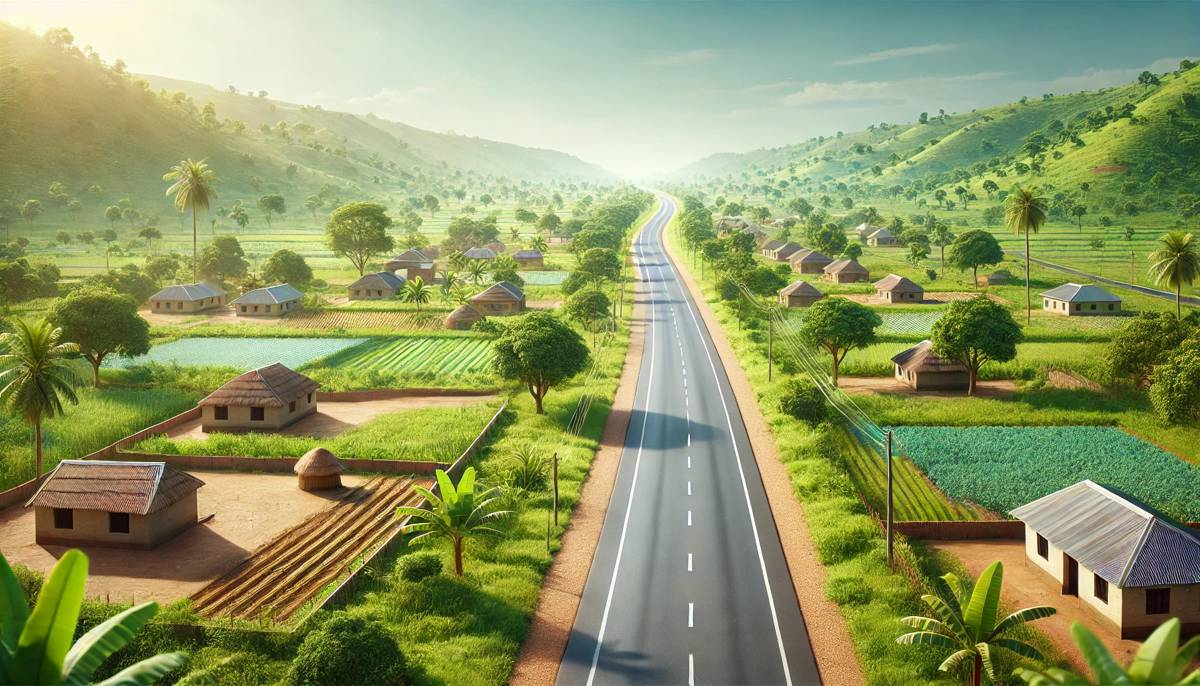Nigeria and The World Bank to Transform Rural Roads and Boost Communities
Nigeria is embarking on an ambitious journey to reshape its rural infrastructure, addressing long-standing challenges that have hindered economic growth and social development.
The World Bank has stepped in to support this transformation with $500 million in concessional financing for the Rural Access Agricultural Marketing Project-Scale Up (RAAMP-SU). Adding to this, the Nigerian government has pledged an additional $100 million, underlining its commitment to improving the country’s rural road sector.
This multi-faceted initiative aims to strengthen infrastructure, empower communities, and foster sustainable growth, especially for the 4 million rural residents who will directly benefit from these upgrades.
The Dire State of Nigeria’s Roads
With a staggering 80% of Nigeria’s road network classified as being in poor condition, it’s no wonder the country’s development faces significant roadblocks—quite literally. Decades of underfunding, coupled with the impacts of climate change, have left the infrastructure in dire straits. High temperatures and heavy rainfall have further exacerbated wear and tear, leading to deteriorating roadways that impede movement and stifle economic activity.
This inadequate infrastructure is not just an inconvenience; it is a major hindrance to the nation’s agricultural and socio-economic progress. Farmers struggle to transport goods to markets, businesses face logistical nightmares, and entire communities remain disconnected from essential services.
Climate-Resilient and Inclusive Development
At the heart of the RAAMP-SU project is a vision to rehabilitate, upgrade, and maintain 6,500 km of rural roads. This monumental task will be spearheaded by newly established state institutions, including the State Road Funds (SRF) and the State Rural Access Roads Agency (RARA). These bodies aim to embed a culture of maintenance and long-term infrastructure planning—a crucial shift for sustainable development.
Beyond infrastructure, the project prioritises inclusivity. By improving connectivity, the initiative will unlock access to agricultural markets, social services, and employment opportunities. Women, in particular, stand to gain significantly, with enhanced access to healthcare and greater participation in the labour market.
Economic and Social Impact
“Rural roads play a critical role in connecting agricultural land to market infrastructure, thereby helping to improve food security,” remarked Ndiamé Diop, World Bank Country Director for Nigeria. He emphasised that the RAAMP-SU project will “enable socioeconomic development for isolated areas and act as a catalyst for the creation of growth centres.”
This isn’t just about building roads; it’s about transforming lives. Farmers will enjoy better farm gate prices, increased trading volumes, and reduced post-harvest losses. Improved infrastructure will also boost household incomes and create jobs, uplifting millions of Nigerians from poverty.
Building Climate Resilience
Climate resilience lies at the core of this initiative. By focusing on constructing high-quality, climate-resilient roads, the project seeks to mitigate the impacts of extreme weather events. Advanced engineering techniques and materials will be employed to ensure that these roads stand the test of time, reducing the need for frequent repairs and cutting long-term costs.
Moreover, the institutional capacity to manage climate risks will be strengthened. This includes equipping state agencies and the Ministry of Agriculture with the tools and knowledge to integrate climate considerations into their infrastructure planning.
A Legacy of Collaboration
The RAAMP-SU project builds on over 15 years of collaboration between Nigeria and the World Bank. Since 2007, the bank has supported various rural road initiatives, laying the groundwork for this expanded programme.
The initiative is part of a larger agenda spearheaded by the Ministry of Agriculture, encompassing not only road infrastructure but also agricultural marketing and the development of agro-logistical centres.
A Bright Road Ahead
Nigeria’s journey to revamp its rural road network is more than just a construction project; it’s a lifeline for millions. With the backing of the World Bank and a clear vision for sustainable development, the RAAMP-SU initiative promises to drive economic transformation and foster inclusivity.
By addressing the root causes of poor infrastructure and integrating climate resilience, the programme lays the foundation for a brighter, more connected future.
The ripple effects of this initiative are set to reshape not just Nigeria’s roads but also its social and economic landscape, proving that investing in infrastructure is, indeed, investing in people.





























